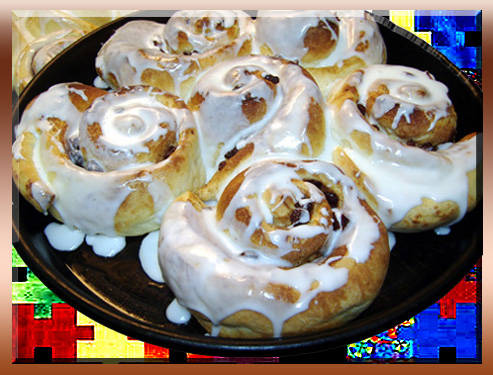
BREAD BAKING
TIPS - About Flour
 Flour is the most important ingredient in a loaf of bread. You get
what you pay for with flour. You pay more for high gluten content, unbleached
flour, stone ground flour and freshness.
Flour is the most important ingredient in a loaf of bread. You get
what you pay for with flour. You pay more for high gluten content, unbleached
flour, stone ground flour and freshness.
Flour is grown all over the country and the world. Some areas produce high
gluten content flour. Spring and winter wheat are known to have high gluten
content in some areas like Montana, North Dakota and Texas. When a farmer brings
his wheat to market it is tested for gluten content and then packaged and sold
according to the test results. Soft wheat has a low gluten content and when
milled is sold as cake flour. Wheat that tests out at 11 grams of protein per
cup is milled and sold in grocery stores as all purpose flour or to restaurants
and hotels as general purpose flour. Flour that test out at 12-14 grams per
cup is milled and sold as bread flour. The best of the best wheat tests out at
14 grams of protein per cup and above and brings in the most dollars for the
farmer. It is known as bread flour/high gluten flour. Some brand names I'm
familiar with are Power Flour, Full Power, Kyrol and Montana High Gluten. I
currently use a Pendleton Mills product called "Power High Gluten Flour". I live
in the northwest and that is what my supplier carries.
The Power Flour I use is unbleached and enriched. Unbleached is a real plus. The
all purpose flour you buy in the grocery store has been bleached with chlorine
bleach to make it white and to remove all the nutritional value for storage.
Before it is sold, the nutritional value is added back and the flour is then
enriched. I always buy unbleached and freshly
ground flour. Commercial bread flour gets to market fast and is sold quickly. It
is a fresh product. I don't mind the mill enriching my flour. They know what
they are doing and are adding all good things. They actually enhance the flour.
Vitamin C, Niacin, Thiamine, Riboflavin, Folic Acid and enzymes to improve
baking are added to my Power Flour. The only thing this
product is lacking is that it is not stone ground. Stone ground is best because
commercial flour mills use steel wheels in grinding. The wheels heat up and bake
off some of the nutritional value in the grinding process. Some purest baker's will grind their own flour
fresh as needed. I personally prefer commercial bread flour. It's fresh and it's
done right.
The real value of high gluten flour is in the baking. High gluten flour
produces bigger fuller loaves than AP flour. The Gluten is the "glue" that holds
the dough together and allows the gas produced by the yeast to stretch the air
pockets to the fullest without breaking. You need to locate a source for high
gluten flour to advance in your bread baking and become an artisan baker. It is
a must!
A good example is pizza. I made a pizza with AP flour recently because I was out
of bread flour. It was not all as good as I am used to making. The crust was
just not right. It did not taste right to me and it did not have the right chew.
I make pizza like the best pizza shop and this was sub-par. A lot of people have
never used bread flour in pizza and probably think you just can't make really
good pizza at home. Wrong! Also, the "bread flour" sold in five and ten pound
bags in the grocery store is not what I'm talking about. Sometimes I think it is
no more than AP flour with gluten added. It stiffens up too soon when kneading
and is just not the real thing. Any flour can be used by the beginner for making
bread. An artisan will only use the best available. You can't go wrong with a 50
pound bag of commercial bread flour. Again, the most important ingredient in
bread baking is the flour.
Learn more bread baking tips in the privacy of your own home and at your own
pace in my eight hour take at home baking class Video Bread Artisan Series.
More Tips
at the following links:
© Copyright
1990-2021
Video Bread
videobread@gmail.com
Better bread baking starts
with Video Bread. The recipe for success!


 Flour is the most important ingredient in a loaf of bread. You get
what you pay for with flour. You pay more for high gluten content, unbleached
flour, stone ground flour and freshness.
Flour is the most important ingredient in a loaf of bread. You get
what you pay for with flour. You pay more for high gluten content, unbleached
flour, stone ground flour and freshness.